
Filter News
Area of Research
- Advanced Manufacturing (1)
- Biology and Environment (3)
- Clean Energy (10)
- Computer Science (3)
- Fusion and Fission (26)
- Fusion Energy (15)
- Materials (24)
- Materials for Computing (3)
- National Security (2)
- Neutron Science (9)
- Nuclear Science and Technology (21)
- Nuclear Systems Modeling, Simulation and Validation (1)
- Quantum information Science (9)
- Supercomputing (27)
News Topics
- (-) Advanced Reactors (34)
- (-) Fusion (54)
- (-) Molten Salt (8)
- (-) Quantum Science (69)
- 3-D Printing/Advanced Manufacturing (121)
- Artificial Intelligence (91)
- Big Data (53)
- Bioenergy (91)
- Biology (98)
- Biomedical (58)
- Biotechnology (22)
- Buildings (57)
- Chemical Sciences (63)
- Clean Water (29)
- Climate Change (99)
- Composites (26)
- Computer Science (187)
- Coronavirus (46)
- Critical Materials (26)
- Cybersecurity (35)
- Decarbonization (79)
- Education (4)
- Element Discovery (1)
- Emergency (2)
- Energy Storage (108)
- Environment (194)
- Exascale Computing (37)
- Fossil Energy (5)
- Frontier (42)
- Grid (62)
- High-Performance Computing (84)
- Hydropower (11)
- Irradiation (3)
- Isotopes (53)
- ITER (7)
- Machine Learning (47)
- Materials (144)
- Materials Science (140)
- Mathematics (7)
- Mercury (12)
- Microelectronics (3)
- Microscopy (51)
- Nanotechnology (60)
- National Security (61)
- Net Zero (13)
- Neutron Science (131)
- Nuclear Energy (108)
- Partnerships (44)
- Physics (61)
- Polymers (33)
- Quantum Computing (34)
- Renewable Energy (2)
- Security (24)
- Simulation (47)
- Software (1)
- Space Exploration (25)
- Statistics (3)
- Summit (57)
- Sustainable Energy (125)
- Transformational Challenge Reactor (7)
- Transportation (97)
Media Contacts
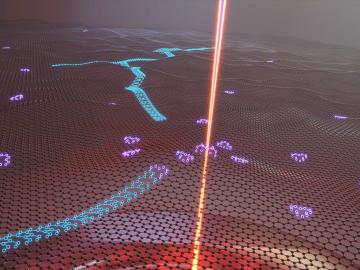
Oak Ridge National Laboratory researchers serendipitously discovered when they automated the beam of an electron microscope to precisely drill holes in the atomically thin lattice of graphene, the drilled holes closed up.
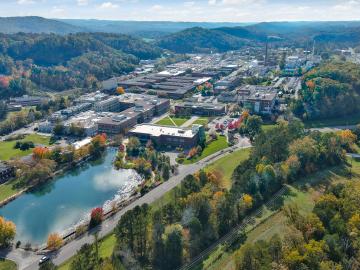
Several significant science and energy projects led by the ORNL will receive a total of $497 million in funding from the Inflation Reduction Act.
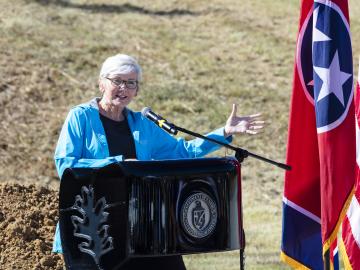
U.S. Secretary of Energy Jennifer Granholm visited Oak Ridge National Laboratory today to attend a groundbreaking ceremony for the U.S. Stable Isotope Production and Research Center. The facility is slated to receive $75 million in funding from the Inflation Reduction Act.
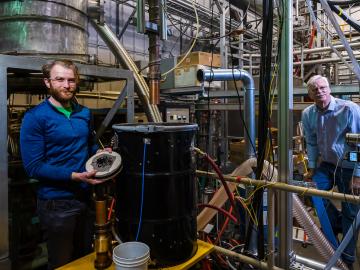
Researchers in the geothermal energy industry are joining forces with fusion experts at ORNL to repurpose gyrotron technology, a tool used in fusion. Gyrotrons produce high-powered microwaves to heat up fusion plasmas.
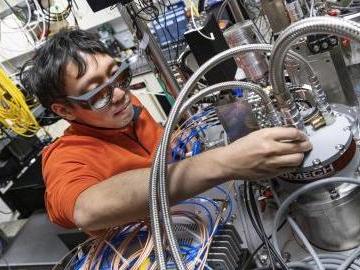
Five National Quantum Information Science Research Centers are leveraging the behavior of nature at the smallest scales to develop technologies for science’s most complex problems.
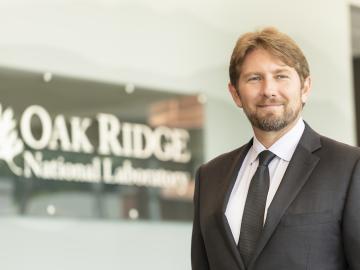
Travis Humble has been named director of the Quantum Science Center headquartered at ORNL. The QSC is a multi-institutional partnership that spans industry, academia and government institutions and is tasked with uncovering the full potential of quantum materials, sensors and algorithms.
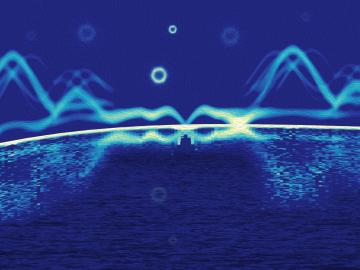
Scientists at ORNL used neutron scattering to determine whether a specific material’s atomic structure could host a novel state of matter called a spiral spin liquid.
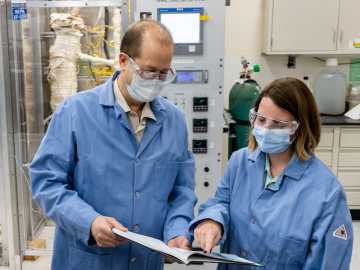
Practical fusion energy is not just a dream at ORNL. Experts in fusion and material science are working together to develop solutions that will make a fusion pilot plant — and ultimately carbon-free, abundant fusion electricity — possible.
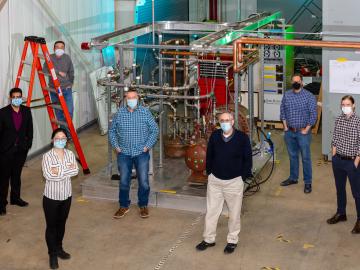
To achieve practical energy from fusion, extreme heat from the fusion system “blanket” component must be extracted safely and efficiently. ORNL fusion experts are exploring how tiny 3D-printed obstacles placed inside the narrow pipes of a custom-made cooling system could be a solution for removing heat from the blanket.
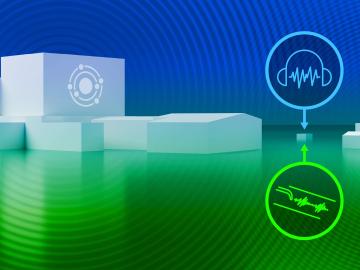
An Oak Ridge National Laboratory team developed a novel technique using sensors to monitor seismic and acoustic activity and machine learning to differentiate operational activities at facilities from “noise” in the recorded data.


